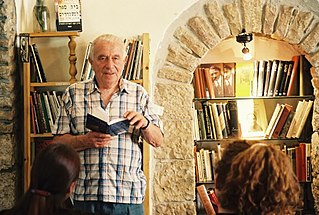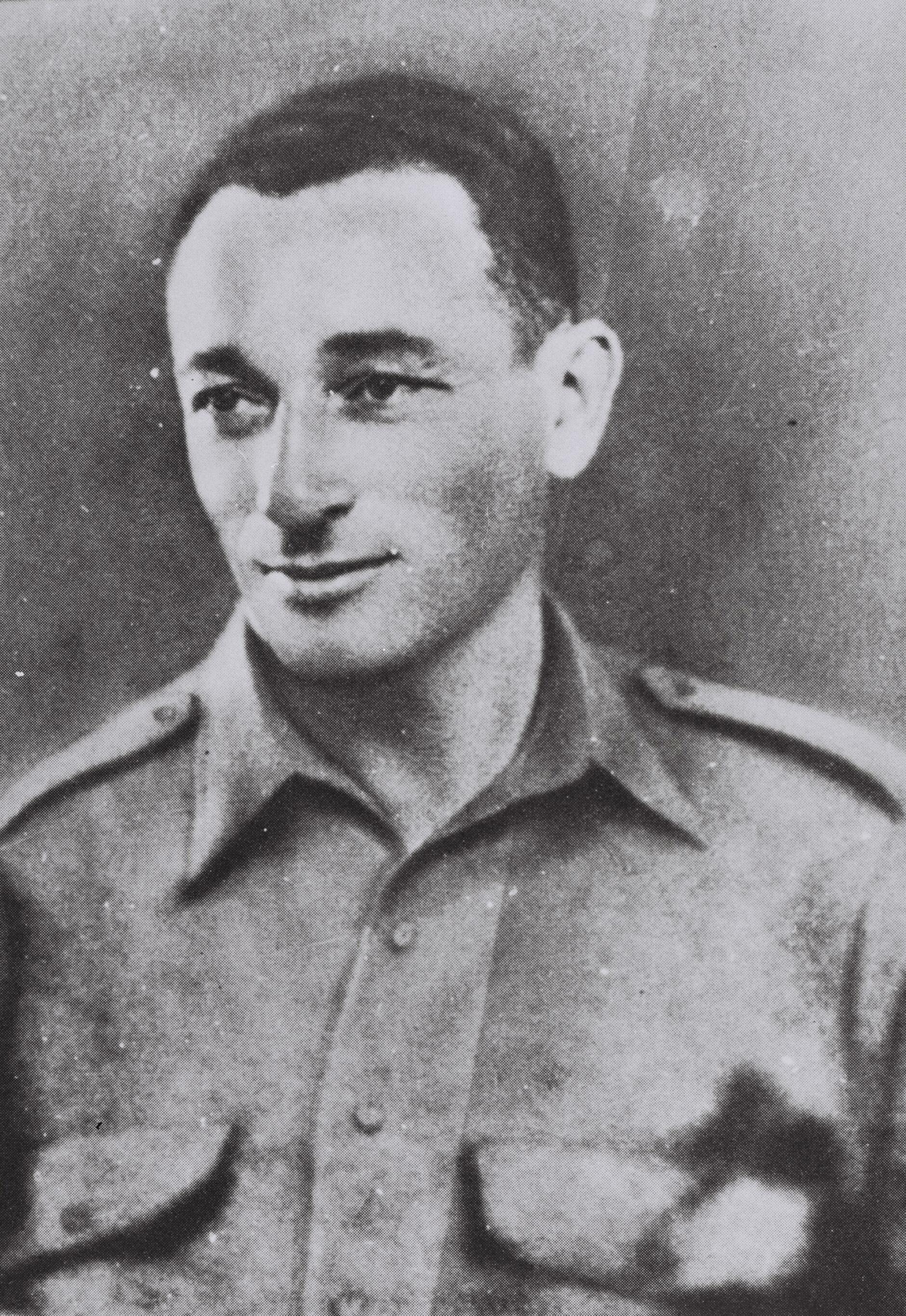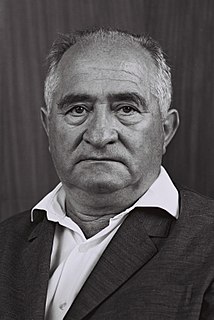 W
WYehuda Amichai was an Israeli poet and author, one of the first to write in colloquial Hebrew.
 W
WMeir Argov was a Zionist activist, Israeli politician and a signatory of the Israeli declaration of independence.
 W
WYehoshua Bar-Hillel was an Israeli philosopher, mathematician, and linguist. He was a pioneer in the fields of machine translation and formal linguistics.
 W
WHanoch Bartov was an Israeli author and journalist.
 W
WHaim Ben-Asher was an Israeli politician who served as a member of the Knesset for Mapai between 1949 and 1955.
 W
WGideon Ben-Yisrael was an Israeli politician who served as a member of the Knesset for Mapai and Rafi in the 1950s and 1960s.
 W
WSara Braverman was a member of the Jewish Parachutists of Mandate Palestine. She was one of the first female fighters to serve in the Palmach and a founding member of the IDF Women's Corps.
 W
WZvi Brenner (1915-1999) was a Jewish soldier in Palestine before and during World War II and the early days of the State of Israel. He trained under Orde Wingate and served alongside Moshe Dayan. He was one of the founders of the Israeli Defense Forces along with Dayan and Yigal Allon. After being wounded badly, he later served as the Secretary of the Kibbutzim Movement. He was a leader of kibbutz Afikim until his death.
 W
WDov Béla Gruner was a Hungarian-born Zionist activist in Mandatory Palestine and a member of the pre-state Jewish underground Irgun. On April 16, 1947, Gruner was executed by the British Mandatory authorities in Palestine on charges of "firing on policemen and setting explosive charges with the intent of killing personnel on His Majesty's service." He is honored as one of the Olei Hagardom, the twelve Jewish pre-independence fighters who were executed by British and Egyptian authorities.
 W
WShraga Har-Gil, was a German-Israeli journalist, Middle East correspondent and a writer. He Hebraized his name to Har-Gil in 1949.
 W
WYehoshafat Harkabi was chief of Israeli military intelligence from 1955 until 1959 and afterwards a professor of International Relations and Middle East Studies at the Hebrew University of Jerusalem.
 W
WYigal Hurvitz was an Israeli politician who served as a government minister in the late 1970s and 1980s.
 W
WHaim Laskov was an Israeli public figure and the fifth Chief of Staff of the Israel Defense Forces.
 W
WGuenter Lewy is a German-born American author and political scientist who is a professor emeritus of Political Science at the University of Massachusetts Amherst. His works span several topics, but he is most often associated with his 1978 book on the Vietnam War, America in Vietnam, and several controversial works that deal with the applicability of the term genocide to various historical events. Lewy rejects that the word genocide is an appropriate label for either Romani genocide or Armenian genocide.
 W
WMordechai (Motke) Maklef was the third Chief of Staff of the Israel Defense Forces (IDF) and later, director-general of many important public companies in the Israeli economy.
 W
WDanny Matt was a decorated career Israeli military officer who served in the Israel Defense Forces from 1948 until 1992. He attained the rank of major general and fought in five Arab-Israeli wars, including the wars of 1948 and 1973. Among his many exploits was a daring operation involving leading a paratroop force across the Suez Canal during the Yom Kippur War. The operation was the beginning phase of a larger Israeli counter offensive that ultimately led to the victory of the Egyptian army and the return of Sinai to Egypt.
 W
WShimon Mazeh was Haganah fighter, a major general in the Israel Defense Forces, an agronomist, and a businessman. He served as the head of the Manpower Directorate from 1949 until December 1952.
 W
WAir Marshal Sir Hector Douglas McGregor, was a senior Royal Air Force commander.
 W
WYa'akov Meridor was an Israeli politician, Irgun commander and businessman.
 W
WDavid Raziel was a leader of the Zionist underground in British Mandatory Palestine and one of the founders of the Irgun.
 W
WHaviva Reik was one of 32 or 33 parachutists sent by the Jewish Agency and Britain's Special Operations Executive (SOE) on military missions in Nazi-occupied Europe. Reik went to Slovakia in fall 1944 and worked with local Jewish people to resist the German occupation there. She established a camp for Russian prisoners of war who had escaped, and helped organize a Jewish resistance unit. The Germans organized forces to put down the Jewish resistance, and Reik and the other parachutists escaped with about 40 local Jews into the mountains. In November 1944, however, Reik and the other parachutists were captured, killed, and buried in a mass grave.
 W
WDavid Rubinger was an Israeli photographer and photojournalist. His famous photo of three Israeli paratroopers after the recapture of the Western Wall has become an iconic image of the Six-Day War. Shimon Peres called Rubinger "the photographer of the nation in the making".
 W
WGideon Schocken was a Haganah fighter, major in the British Army during World War II, and aluf in the Israel Defense Forces (IDF). He served as the head of the Manpower Directorate from February 1956 to April 1961.
 W
WEnzo Sereni was an Italian Socialist Zionist, co-founder of kibbutz Givat Brenner, celebrated intellectual, advocate of Jewish-Arab co-existence and a Jewish Brigade officer who was parachuted into Nazi-occupied Italy in World War II, captured by the Germans and executed in Dachau concentration camp.
 W
WShlomo Shamir was the third Commander of the Israeli Navy (1949–1950), and the first Israeli Navy Commander to receive the rank of Aluf. He was the third Commander of the Israeli Air Force (1950–1951).
 W
WChaim Sheba was an Israeli physician, notable for being the founder of Sheba Medical Center.
 W
WMordechai Surkis was an Israeli politician who was the first mayor of Kfar Saba, as well as serving as a member of the Knesset for Rafi and its successors between 1965 and 1974.
 W
WIsrael Tal, also known as Talik, was an Israel Defense Forces (IDF) general known for his knowledge of tank warfare and for leading the development of Israel's Merkava tank.
 W
WMeir "Zarro" Zorea MC was a general in the Israel Defense Forces (IDF) and later a member of the Knesset. He earned distinction through his combat actions in World War II and in the 1948 Arab-Israeli War. He was a founder of Democratic Movement for Change, an initially successful but short-lived centrist party.
 W
WShalom Zysman was an Israeli politician who served as a member of the Knesset for the General Zionists between 1951 and 1955.